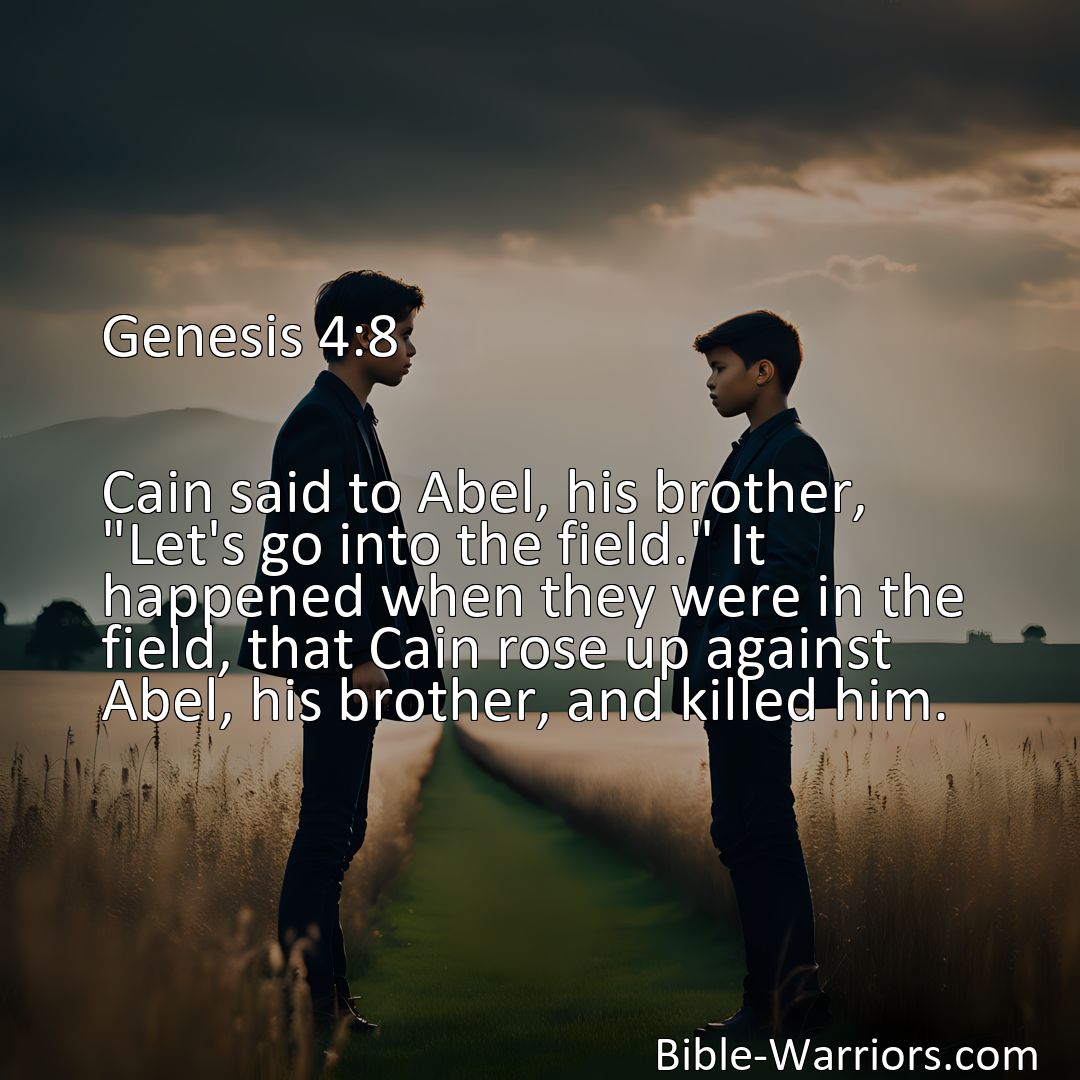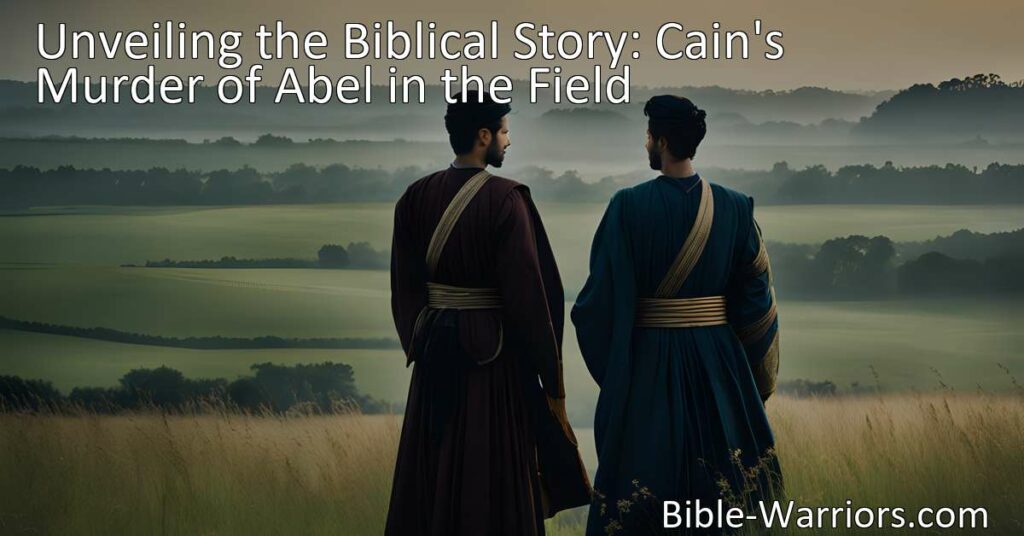Genesis 4:8 – Cain said to Abel, his brother, “Let’s go into the field.” It happened when they were in the field, that Cain rose up against Abel, his brother, and killed him.
The story of Cain’s murder of Abel in the field teaches us about the destructive consequences of jealousy, the importance of handling emotions healthily, and the accountability for our actions. This Biblical tale goes beyond a chilling anecdote and contains valuable lessons that are applicable even in our time.
Table of Contents
Have you ever heard the story of Cain and Abel, the two sons of Adam and Eve? This compelling narrative from the Bible revolves around a concept that may be difficult for some seventh graders to grasp: sibling rivalry leading to actual murder. Though it may seem a harsh lesson, it is a timeless one that has the potential to leave lasting impressions on young minds. But what exactly happened when “Cain said to Abel, his brother, ‘Let’s go into the field.'”? Why did Cain kill Abel? And what can we learn from this tragic event?
In the beginning, according to the Biblical account, Adam and Eve had two sons. The first-born was named Cain and the second, Abel. Cain was a farmer who tilled the land while Abel was a shepherd who tended to his sheep. Both brought offerings to God: Cain from the fruits of the soil and Abel from the firstborn of his flock. However, God accepted Abel’s offering with delight while he did not show the same favor towards Cain’s offering.
The verse we’re focusing on today, where “Cain rose up against Abel, his brother, and killed him,” is triggered by these differing reactions. It is a momentous scene, set in the open field where nobody is watching. The field, usually a place where seeds are sown and crops harvested, becomes the setting for the world’s first murder.
Cain, consumed by envy, can’t bear that his brother’s offering has been favored over his. He may have been hurt, feeling as if he was not good enough, or that God enjoyed showing preference. These feelings spiraled into anger and lead to the tragic incident, when in a fit of rage, Cain kills his brother Abel.
This unfortunate event teaches us several lessons. First, it presents the destructive consequence of jealousy. Cain allowed his envy of Abel to fester into anger, clouding his judgment and leading him down a path of violence and regret. It’s a lesson about handling our feelings and emotions in a proper and respectful way.
Secondly, it points to the concept of personal accountability and consequence. After committing the act, Cain tries to deny his responsibility, asking God, “Am I my brother’s keeper?” But he quickly learns that actions have repercussions. In the end, Cain is made a wanderer, bearing a mark that protects him from being killed but also symbolizes his guilt.
To decode this Biblical tale for seventh graders, we need to dissect it in relatable terms. Have you ever felt jealous because your friend got a higher grade or your sibling received a larger slice of cake? How did you react? Maybe you felt a spark of anger, or perhaps you sulked in silence. Would it have been better to express your feelings openly and reasonably?
When you imagine being in Cain’s shoes, it’s clear that dealing with envy and anger in a healthy way is crucial. It also underscores the importance of understanding that we’re accountable for our actions and that reactions can result in harsh consequences.
In sum, the Biblical story of Cain’s murder of Abel in the field goes beyond a chilling anecdote. It’s a relevant lesson about the dangers of jealousy, the importance of handling emotions healthily, and the very real consequences our actions can have. While the story might seem distant and archaic, when broken down, it’s teeming with lessons applicable not just during Biblical times, but even in our time. Each of us can take away something valuable from it.
Freely Shareable Bible Verse Image Genesis 4:8
I hope this Bible verse image brings you hope and peace. Share it with someone who needs it today!



